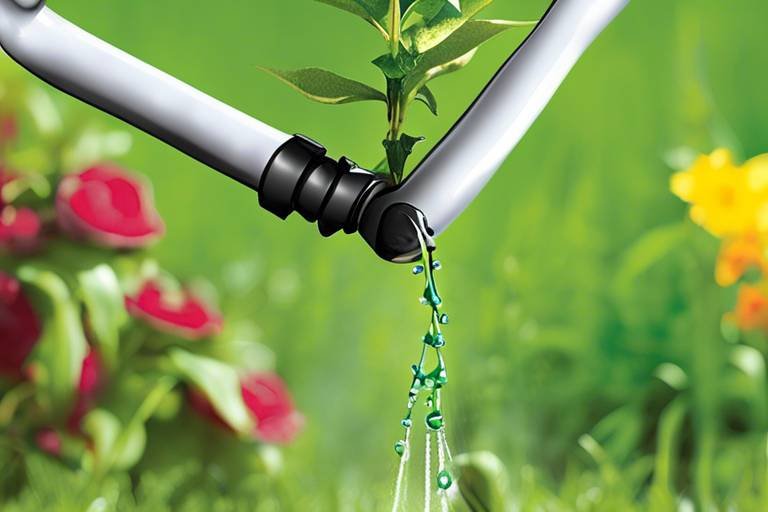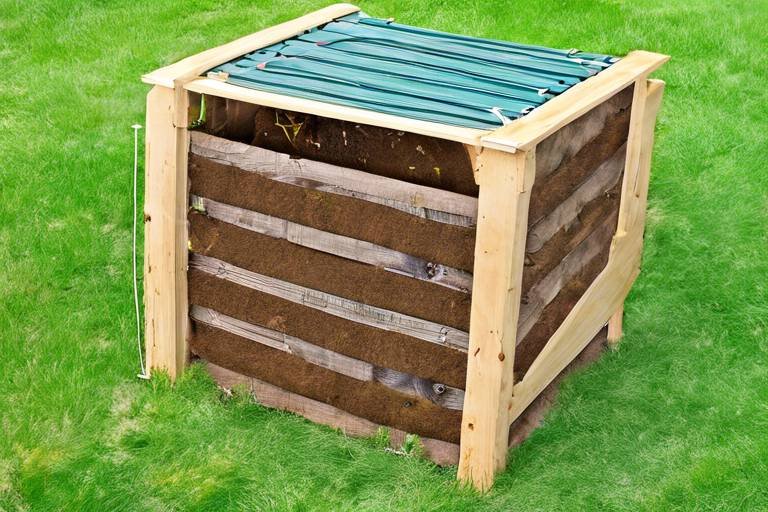How to Grow an Organic Kitchen Garden
Creating an organic kitchen garden is a rewarding and fulfilling experience that allows you to enjoy fresh, homegrown produce right at your doorstep. By following a few essential steps and tips, you can cultivate a thriving garden that not only provides nutritious food but also contributes to a sustainable and eco-friendly lifestyle. Let's delve into the world of organic gardening and uncover the secrets to growing a successful kitchen garden.

Choosing the Right Location
Discover the steps and tips for cultivating a thriving organic kitchen garden. Learn about soil preparation, plant selection, watering techniques, pest control, and harvesting to enjoy fresh, homegrown produce.
When it comes to setting up your organic kitchen garden, selecting the perfect spot is crucial. Picture this: a sunny area with well-drained soil that basks in sunlight, providing the ideal environment for your plants to flourish. Consider the proximity to a water source; it should be easily accessible for regular watering sessions. Just like how we humans thrive in the right environment, plants too need the perfect location to reach their full potential.
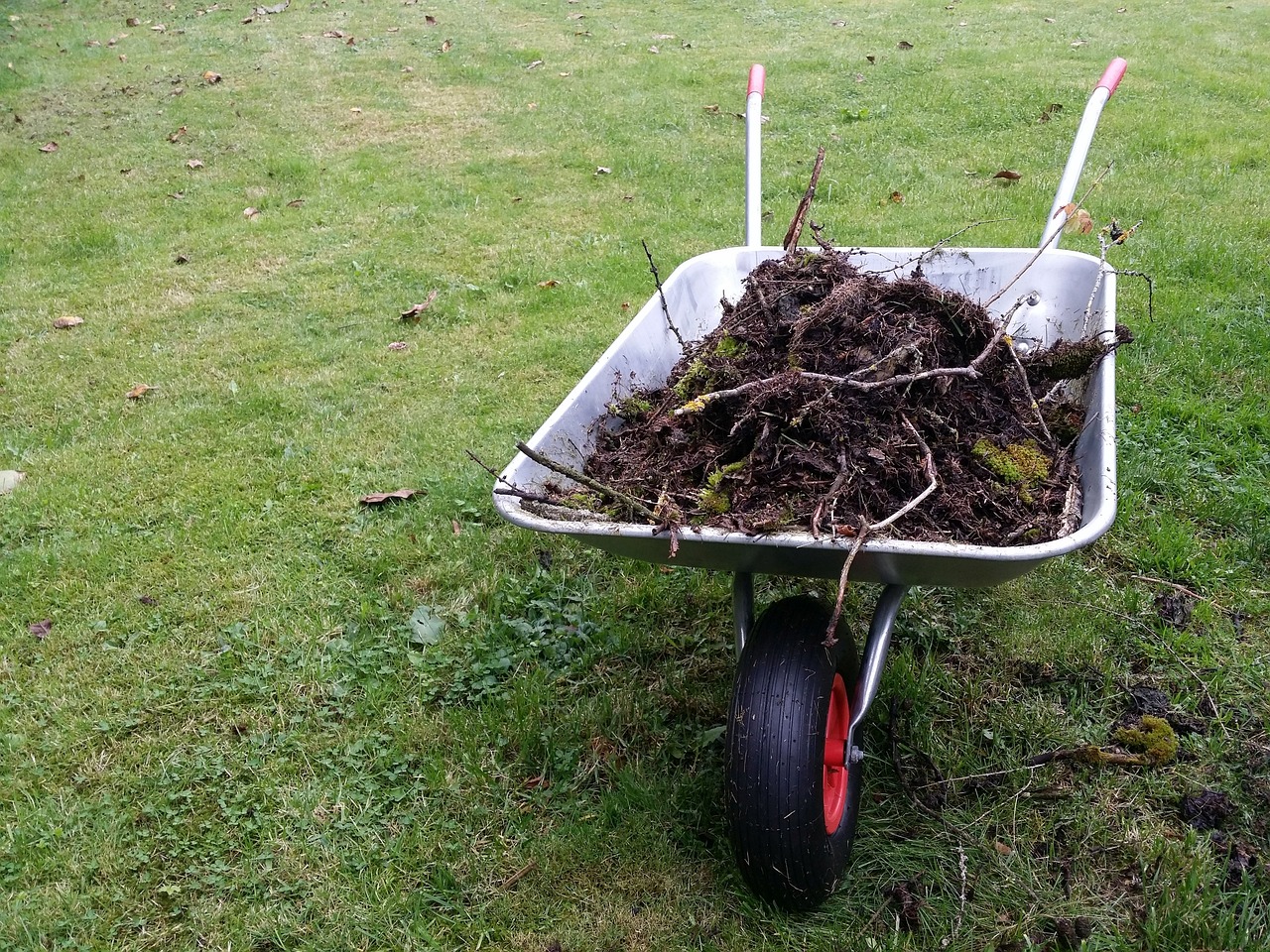
Preparing the Soil
Discover the steps and tips for cultivating a thriving organic kitchen garden. Learn about soil preparation, plant selection, watering techniques, pest control, and harvesting to enjoy fresh, homegrown produce.
When it comes to organic gardening, soil preparation is the foundation for a successful harvest. Before you start planting, it's essential to ensure that your soil is healthy and nutrient-rich. One crucial step in preparing the soil is to conduct a soil test to determine its pH level and nutrient content. This information will guide you in making necessary amendments to create an optimal growing environment for your plants.
Amending the soil with organic matter is key to improving its structure and fertility. Adding compost, aged manure, or organic fertilizers can enhance the soil's ability to retain moisture and nutrients, promoting better plant growth. Consider creating a compost pile in your garden to recycle organic waste and create a sustainable source of nutrient-rich soil amendment.
Creating a nutrient-rich environment is vital for supporting plant growth and vitality. Organic gardening emphasizes the use of natural fertilizers and soil amendments to nourish plants without synthetic chemicals. By incorporating organic materials into the soil, you can provide essential nutrients for healthy root development and robust growth.
Additionally, mulching the soil can help conserve moisture, suppress weeds, and regulate soil temperature. Organic mulches such as straw, leaves, or grass clippings not only improve soil health but also contribute to weed control and reduce the need for watering. Mulching is a simple yet effective practice that can benefit your plants and soil in the long run.
Overall, preparing the soil in your organic kitchen garden sets the stage for a bountiful harvest. By focusing on soil health, nutrient availability, and sustainable practices, you can create an environment where your plants thrive naturally and produce nutritious, flavorful crops.
1. What are the benefits of organic gardening?
2. How can I prevent pests in my organic garden without using chemicals?
3. What is the importance of crop rotation in organic gardening?
4. How often should I water my organic garden?
5. What are some common challenges faced by organic gardeners and how to overcome them?
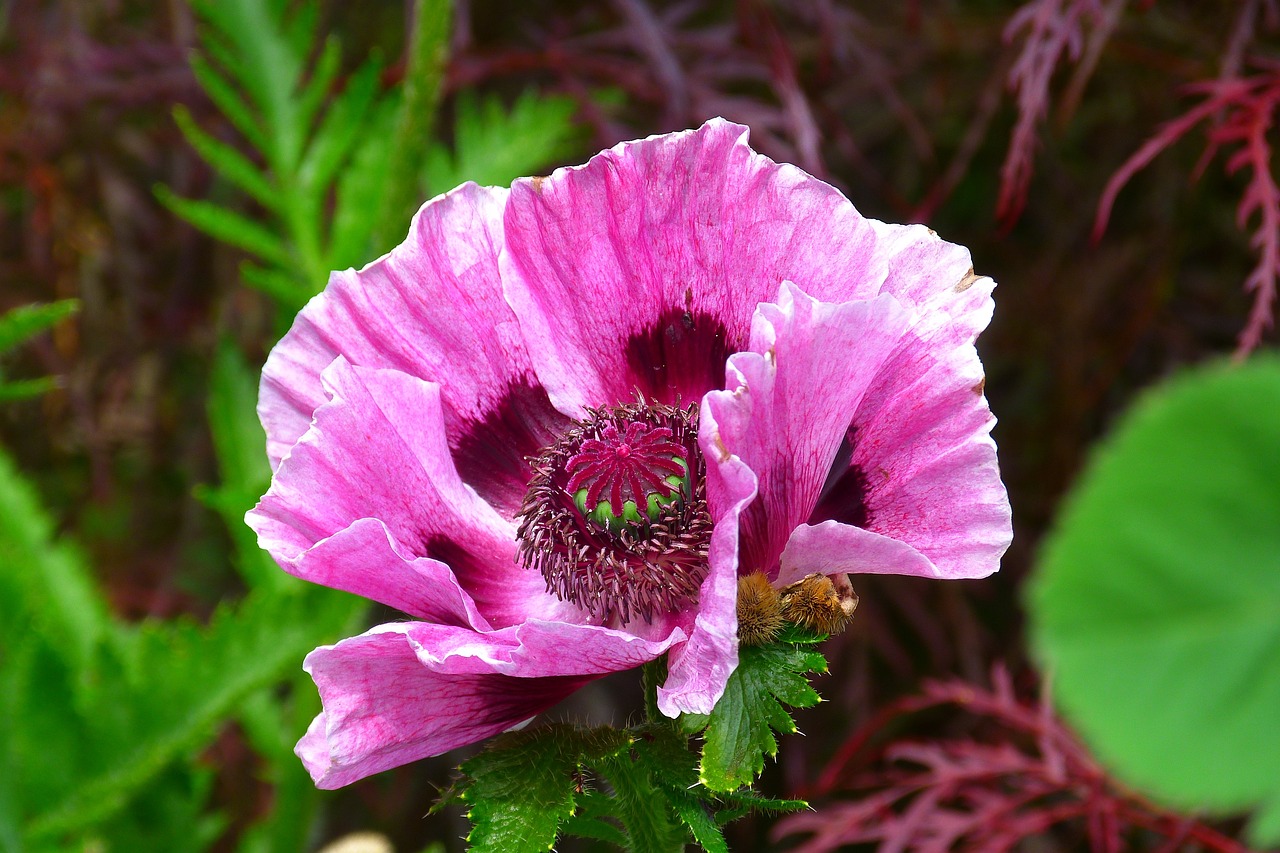
Selecting Plants and Seeds
When it comes to creating a successful organic kitchen garden, selecting the right plants and seeds is crucial. The first step is to determine which vegetables, herbs, and fruits you want to grow based on your preferences and the climate of your region. Consider the space available in your garden and the amount of sunlight it receives to choose plants that will thrive in those conditions.
It's essential to select high-quality seeds or seedlings from reputable sources to ensure the success of your garden. Look for organic and non-GMO options to maintain the integrity of your organic garden. Additionally, consider the maturity rate of the plants you choose to have a continuous harvest throughout the growing season.
Before purchasing seeds or seedlings, research the specific requirements of each plant to understand their growth habits, water and sunlight needs, and potential pests or diseases they may be susceptible to. This knowledge will help you plan the layout of your garden and provide the appropriate care for each plant.
Creating a diverse garden with a mix of vegetables, herbs, and fruits not only adds visual interest but also promotes biodiversity and can help naturally repel pests. Consider companion planting, where certain plants are grown together to benefit each other, such as planting marigolds to deter pests or growing herbs like basil to improve the flavor of tomatoes.
Remember that experimentation is key to finding the perfect balance of plants in your organic garden. Don't be afraid to try new varieties or species to see what works best in your specific environment. By selecting a variety of plants and seeds, you can enjoy a bountiful harvest and a thriving garden throughout the growing season.
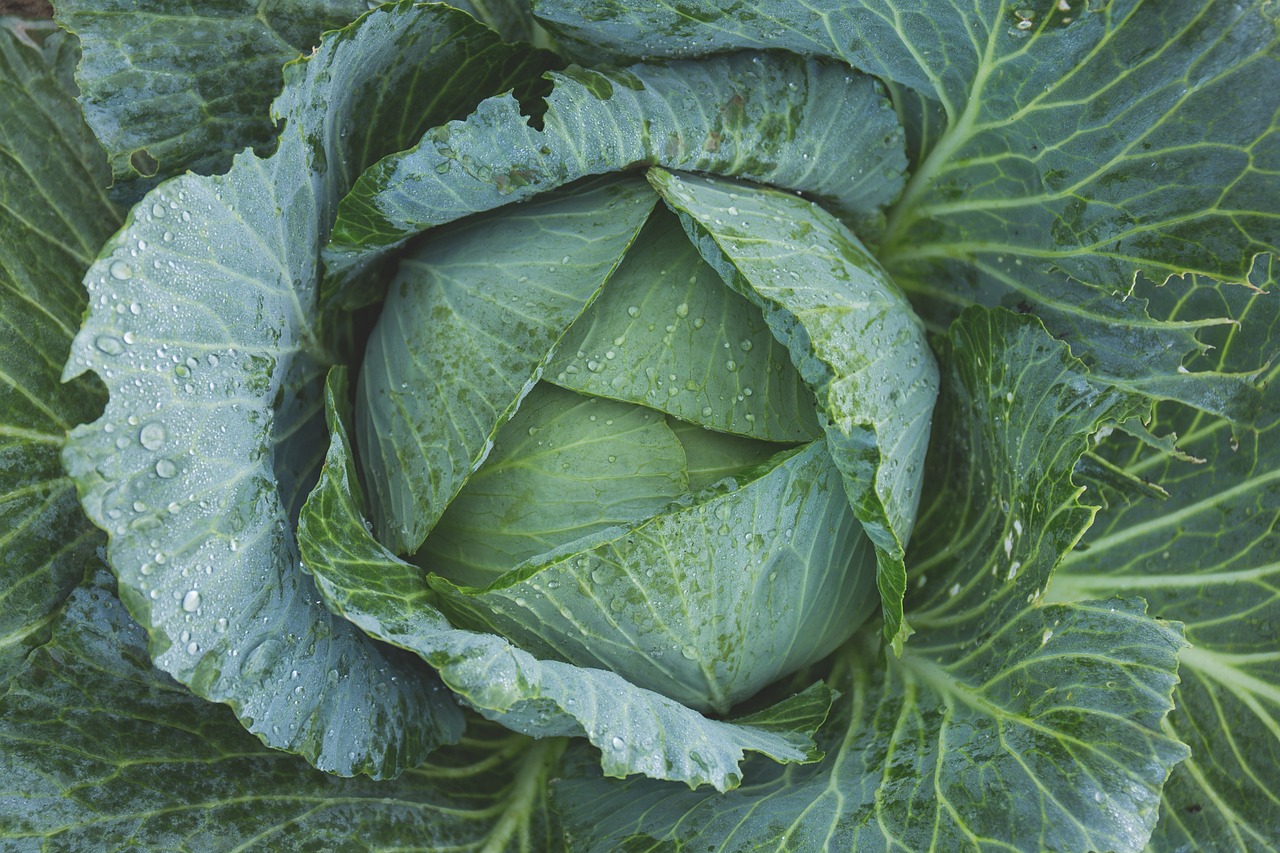
Implementing Organic Pest Control
Implementing organic pest control in your garden is essential to ensure the health and productivity of your plants without relying on harmful chemicals. One effective method is companion planting, where certain plants are grown together to deter pests naturally. For example, planting marigolds alongside tomatoes can help repel nematodes and other harmful insects. Additionally, attracting beneficial insects like ladybugs and lacewings can help control pest populations organically.
Another organic pest control technique is using homemade sprays made from natural ingredients such as neem oil, garlic, or chili peppers. These sprays can be effective in deterring pests like aphids, caterpillars, and mites without harming beneficial insects or contaminating your produce. Regularly inspecting your plants for signs of pest damage and taking prompt action is crucial in preventing infestations from spreading throughout your garden.
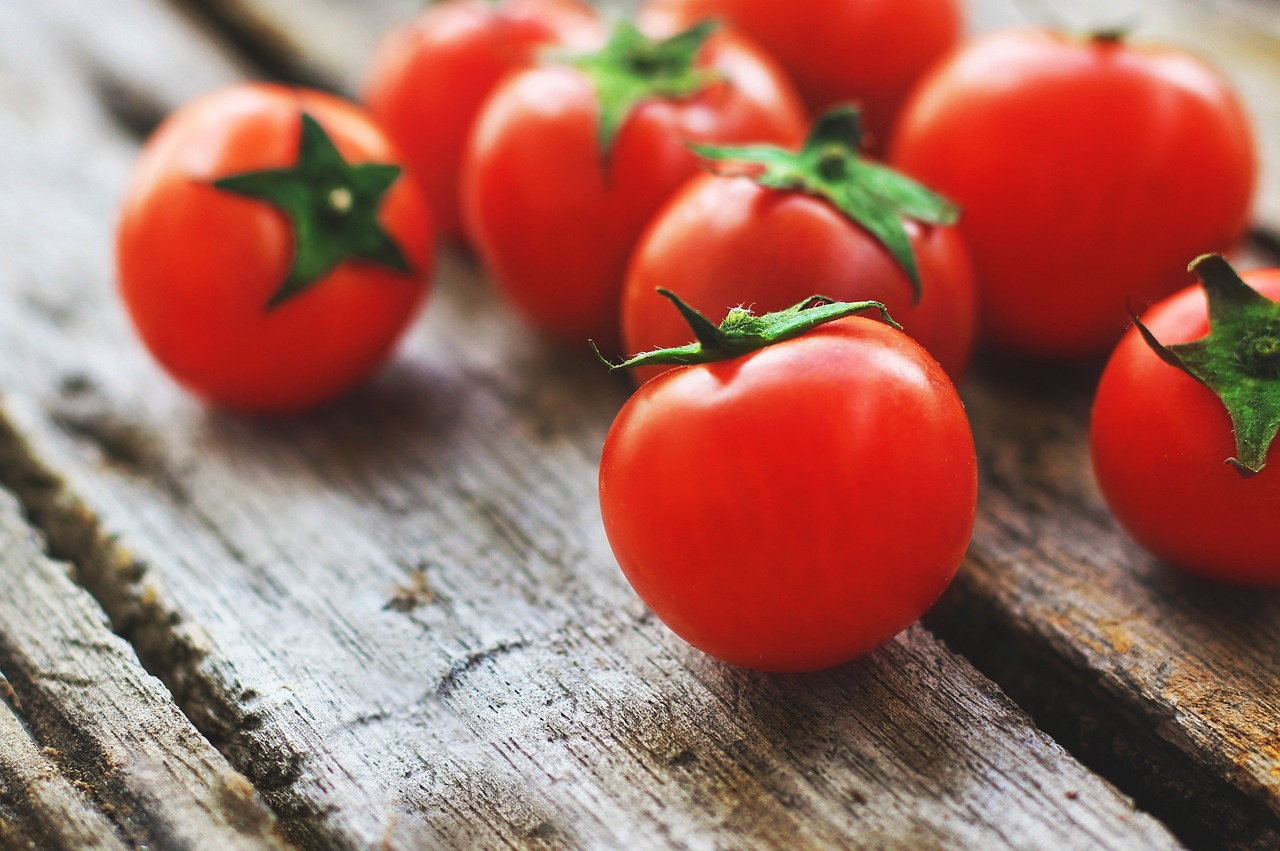
Watering Techniques
Watering your organic garden is a crucial aspect of plant care that directly impacts their health and productivity. Understanding the specific watering needs of different plants and mastering the art of watering can make a significant difference in the success of your garden.
One effective technique is to water deeply but infrequently. This encourages plants to develop deep root systems, making them more resilient to drought conditions. Consider using a soaker hose or drip irrigation system to deliver water directly to the plant roots, minimizing evaporation and water waste.
It's essential to water early in the morning to allow plants to absorb moisture before the heat of the day. Avoid watering in the evening as damp foliage overnight can promote disease development. Monitor soil moisture levels regularly to ensure plants are receiving adequate hydration without becoming waterlogged.
Another useful method is to mulch around plants to retain soil moisture and reduce water evaporation. Organic mulches like straw, wood chips, or compost not only help conserve water but also improve soil structure and fertility over time.
Adjust your watering schedule based on weather conditions. During hot and dry periods, plants may require more frequent watering, while cooler and rainy weather may necessitate less. Observing your plants closely and responding to their specific needs can prevent issues like overwatering or underwatering.
Consider using rain barrels or collecting water from a sustainable source to reduce reliance on municipal water supplies. This eco-friendly approach not only conserves water but also provides plants with natural, untreated water that is free of chemicals often found in tap water.
Remember, watering is not just about quenching plants' thirst but also about fostering their growth and resilience. By implementing proper watering techniques tailored to your garden's needs, you can promote healthy plant development and maximize the yield of your organic kitchen garden.

Maintaining Organic Practices
When it comes to maintaining organic practices in your kitchen garden, there are several key principles to keep in mind. One essential aspect is composting, which involves recycling organic materials like kitchen scraps and yard waste to create nutrient-rich soil for your plants. By composting, you not only reduce waste but also enrich the soil, promoting healthy plant growth.
Another crucial practice is mulching, which helps retain moisture in the soil, suppress weeds, and regulate soil temperature. Organic mulches like straw, leaves, or grass clippings can improve soil structure and fertility while reducing the need for watering and weeding.
Additionally, crop rotation is essential for preventing soil depletion and pest buildup. By rotating crops each season, you can avoid nutrient deficiencies and minimize the risk of diseases and pests that target specific plant families. This practice also helps maintain soil balance and overall garden health.
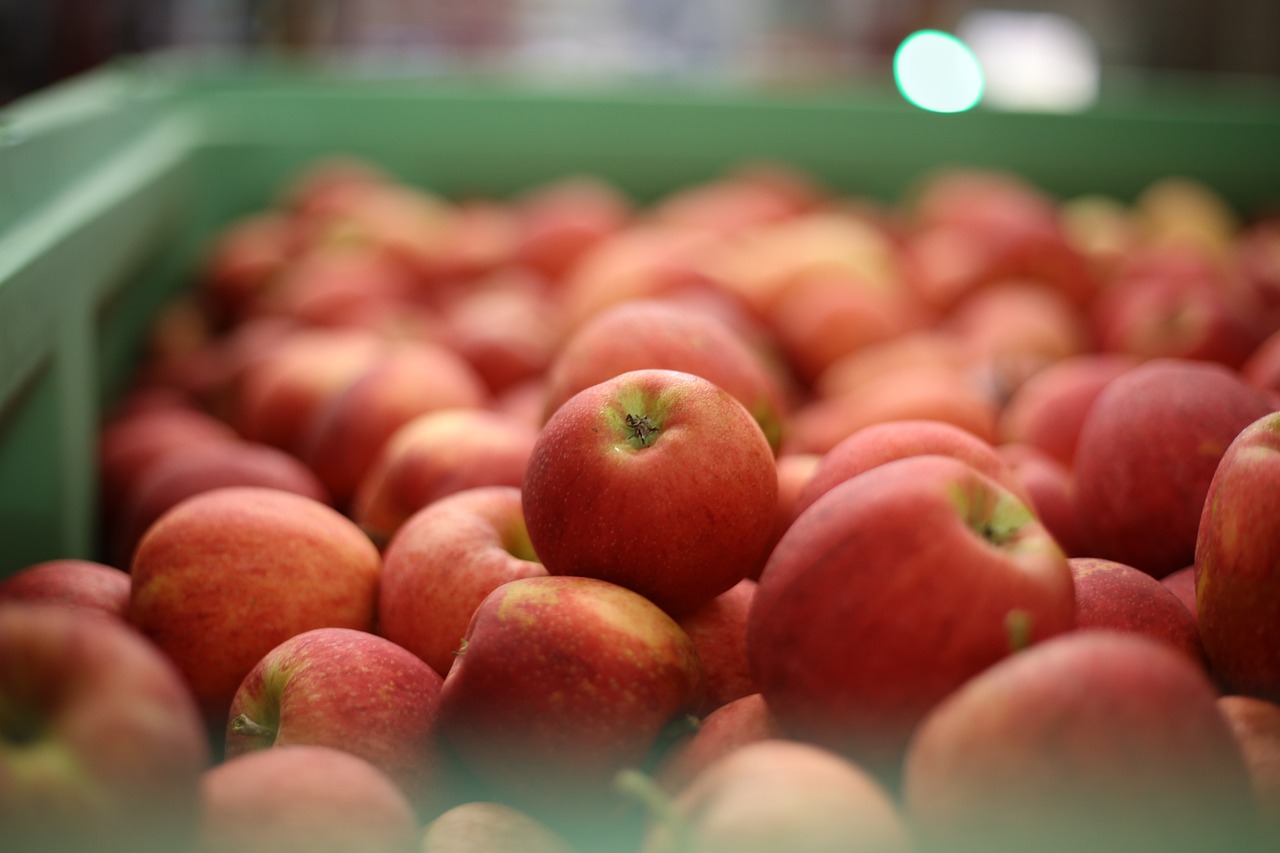
Harvesting and Enjoying Your Produce
After putting in the effort and care to nurture your organic kitchen garden, the time has come to reap the rewards of your hard work. Harvesting your produce at the right time ensures the best flavor and nutritional value. When it comes to harvesting, timing is crucial. Each fruit and vegetable has its own ideal stage for picking to achieve peak ripeness and taste.
One method to determine if your produce is ready for harvest is by checking for visual cues. For example, tomatoes should have vibrant colors and slightly give when gently squeezed. Carrots should be firm and brightly colored. Additionally, leafy greens are best harvested when young and tender to avoid bitterness.
Another important aspect of harvesting is using the correct tools. Sharp pruners or scissors are essential for cleanly cutting stems and avoiding damage to the plant. Proper technique when harvesting helps promote plant health and future growth.
Once you have harvested your fresh produce, it's time to enjoy the fruits of your labor. Whether you plan to cook with your harvest immediately or store it for later use, handling your produce properly is key to preserving its quality. Storing fruits and vegetables in the right conditions, such as cool and dark places or the refrigerator, can extend their shelf life and maintain flavor.
When it comes to enjoying your organic bounty, get creative in the kitchen. Experiment with new recipes that highlight the flavors of your homegrown produce. From salads bursting with freshness to hearty stews brimming with vegetables, there are endless ways to savor the delicious results of your organic kitchen garden.
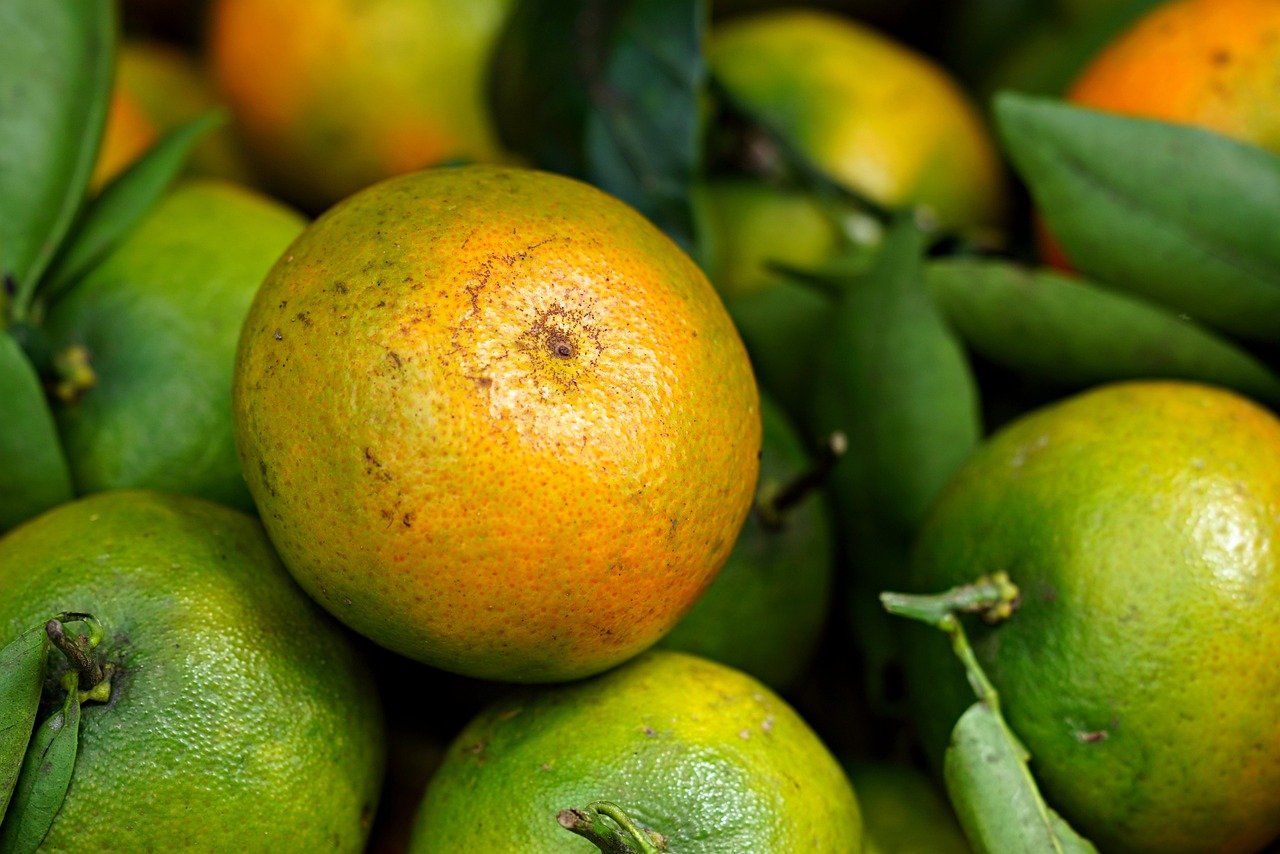
Continuous Learning and Improvement
Continuous learning and improvement are essential aspects of mastering the art of organic gardening. Just like a skilled painter constantly refines their brushstrokes, a successful gardener never stops honing their green thumb. By staying open to new ideas and techniques, you can elevate your kitchen garden to new heights of productivity and sustainability.
One effective way to enhance your gardening skills is to stay informed about the latest trends and innovations in organic gardening. Joining local gardening clubs or online forums can connect you with like-minded enthusiasts who share valuable insights and experiences. Attending workshops or seminars led by experienced gardeners can also provide you with practical knowledge and inspiration.
Experimentation is another key component of continuous learning in organic gardening. Don't be afraid to try new plant varieties or cultivation methods in your garden. Keeping a gardening journal to track your experiments and their outcomes can help you learn from both successes and failures, guiding your future decisions and practices.
Furthermore, embracing a mindset of continuous improvement involves being adaptable and flexible in your gardening approach. As you observe the changing needs of your plants throughout the seasons, be willing to adjust your watering schedule, fertilization routine, or pest control methods accordingly. By staying attentive to your garden's feedback, you can fine-tune your practices for optimal results.
Remember, organic gardening is a journey of discovery and growth. Every season presents new opportunities to learn, adapt, and improve. By cultivating a mindset of curiosity and resilience, you can transform your kitchen garden into a thriving oasis of fresh, organic abundance.
Frequently Asked Questions
- What are the benefits of growing an organic kitchen garden?
Growing an organic kitchen garden offers numerous benefits, including access to fresh and nutritious produce, reduced exposure to harmful chemicals, cost savings on groceries, and the satisfaction of cultivating your own food.
- Do I need a large space to start an organic kitchen garden?
No, you can start an organic kitchen garden in a small space like a balcony, patio, or even windowsill. Container gardening and vertical gardening techniques make it possible to grow a variety of plants in limited areas.
- How can I prevent pests in my organic garden without using chemicals?
You can prevent pests in your organic garden through methods like companion planting, introducing beneficial insects, using physical barriers, practicing good garden hygiene, and regularly inspecting your plants for signs of pests.
- What is the difference between organic and conventional gardening?
Organic gardening focuses on using natural and sustainable practices to cultivate plants without synthetic chemicals or genetically modified organisms. Conventional gardening often relies on synthetic fertilizers, pesticides, and herbicides.
- How often should I water my organic garden?
The frequency of watering your organic garden depends on factors like plant type, soil moisture levels, weather conditions, and season. It's essential to water deeply but infrequently to encourage deep root growth and plant resilience.


